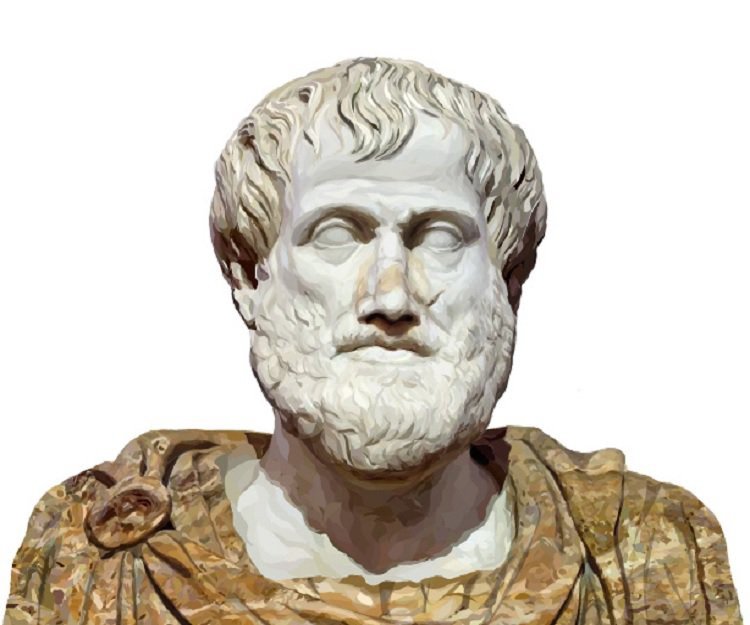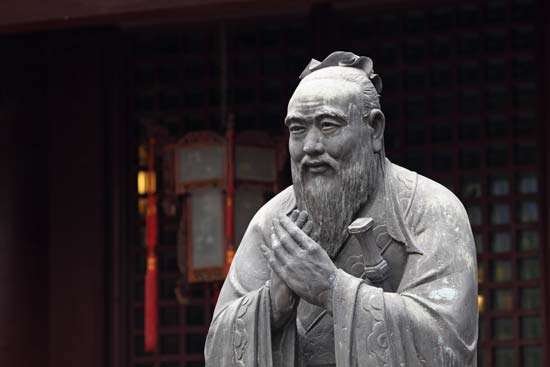Western and Eastern Perceptions of Human Strengths
Societies differ in what they believe are human strengths. These differences largely occur along cultural lines that have developed over millenia. Namely, different philosophical and religious traditions inform these differences. Deep-seated differences in traditions affect what is considered to be a human strength, and often influence the perspectives that positive psychologists take. Subjective well-being is impacted by the traditions to which one subscribes, so it is clear that positive psychologists have a stake in understanding the key differences and similarities within and between these traditions. As a matter of fact, differences in culture can explain a host of phenomena, including why different educational techniques cannot be copied and pasted from one part of the world to the next. Westerners feel differently about goals and their roles in the "big picture," than do Easterners. A survey will be made of some traditions that are seen as playing key roles in the development of this collectivist versus individualistic cultures, and then a survey of the differences between the cultures themselves. By no means is this survey exhaustive. The author would like to make a note that any inaccuracies highlighted he would be grateful for. Many of these traditions are novel to Westerners. The author notes that he is a Westerner and so any paradigmatic inaccuracies would liekly be attributed to a misunderstanding of his studied resources.
Moreover, and most importantly, the author would like to note that he, nor psychologists at large, consider one view to be greater than the other. Finally, most uses of the word "virtue" and the word "strength" are interchangable hereafter.
Wesstern Traditions
There are some discrepancies in who is considered to be a Westerner or an Easterner. The Westerner would likely be considered as an inhabitant of North America or western Europe.
Aristotle
Aristotle advanced several moral virtues, chief among them:
- generosity
- courage
- moderation
- mumficience
- magnificence
- even temper
- friendliness
- truthfulness
- wit
- justice
- friendship
He also stated that the community has a large impact on the development of these virtues. The political community at large, named a polis assisted in the development and maintenance of these strengths. Community, to Aristotle, was not only important, but necessary. He felt so strongly about this that he concluded the government should be required to educate the young in the attainment of these strengths. This was done through education. He stated that the orderly and sanctioned life was key to rising above hedonism and attainment of virtue.
Judeo-Christianity
Posited as seven virtues by St. Thomas Aquinas are cardinally:
- fortitude
- justice
- temperance
- wisdom
Following these are:
- faith
- hope
- charity
Peterson and Seligman (2004) interpreted Moses' Ten Commandments in the Old Testament as having underlying aspects of the cardinal virtues. Prohibitions against murder, theft, and lying were seen as just. Prohibitions against adultery and covetousness as temperance. Lastly, transendence is seen in the nature of the Ten Commandments and their divinity.
- leadership
- faith
- mercy
- love
- joy
- hope
- patience
- hospotality, and more (Romans 12:3-21).
In Proverbs:
- wisdom and discipline
- prudence
- justice
- fairness
- knowledge
- discretion
An emphasis on overall wisdom was placed heavily in the opening verses of Proverbs (1:1-7).
In Matthew, meekness, peace keeping and making, mercy, and righteousness are suggested to have value and importance to God.
In the Talmud, in the Pirkei Avot, fairness, hospitality, fairness, and peace-seeking are emphasized. In Zechariah 8:16, "You shall administer truth, justice, and peace within your gates."
Islam
There is some disagreement about whether Islam is considered a Western or Eastern tradition by academics. Islam considers virtues not only as attainable, but moral imperatives. Among these are:
- gratitude
- love
- kindness
- justice and equality
- courage
- obliged care for bretheren
The care for bretheren was to be considered especially for the poor, and done in secrecy. This was for maintenance of humility in the alms-giver and to avoid embarassment for his brother.
Eastern Traditions
The surveyed traditions here are from the Asias.
Confucianism
Confucianism was founded by Confucius, sometimes referred to as "The Sage." He was born in a time of war and stated that leadership and education were precursors to morality, which he saw as a solution to many of the evils in the world. He can be quoted as saying, "You would like others to do for you what you would indeed do for yourself" (Analects 6:28). He emphasized the importance for leaders to take charge of and care for their groups. He emphasized virtues:
- jen (humanity, circumscribing the others)
- yi (duty to treat others well)
- li (etiquette and sensitivity to others)
- zhi (wisdom)
- xin (truthfulness)
Taoism
Taoism has many difficult to translate tenets, and therefore it is difficult to discuss with Western audiences and paradigms. Tao translates roughly to "The Way." It envelops, surrounds, and flows through all things (Lopez, Pedrotti, & Snyder, 2015). Lao-Tzu, Taoism's founder, (1994) discusses the Way in the following lines:
The Way can be spoken of,
But it will not be the constant way;
The name can be named,
But it will not be the constant name.
The nameless was the beginning of the myriad creatures;
The named was the mother of the myriad creatures.
Hence constantly rid yourself of desires in order to observe its subtlety;
But constantly allow yourself to have desires in order to observe what it is after.
These two have the same origin but differ in name.
They are both called dark,
Darkness upon darkness
The gateway to all is subtle.
It is important to note that one cannot teach another the Way. The Way must be experienced by living life fully.
Buddhism
For Buddhism, founded by The Buddha, looking for the goodness in others is integral. Sufferings is natural and brought about by desires, where Nirvana is the freedom from desire. The Brahma Viharas are virtues that are universal and of utmost importance:
- love
- compassion
- joy
- equanimity
Only through divorce from desire can one achieve Nirvana.
Hinduism
Hinduism, unlike the other surveyed Eastern traditions, does not have a clear founder or origin in time. It weaves the interconnectedness of all things into its teachings. It emphasizes harmony among all things. Aims include to live such a full life and to have done so with correctness, that one would pass to the afterlife without need for reincarnation. This is due to a believ that one is reincarnated to learn life's lessons. Life's lessons may be summarized roughly as the seeking and attainment of ultimate self-knowledge and ultimate self-betterment.
The Upanishads state "A man turns into something good by good action and something bad by bad action." Good actions can have an effect on the status of reincarnation if conditions of ultimate self-betterment and self-knowledge are not met.
Western and Eastern Cultures Influenced by Tradition
Psychologists typically classify Western and Eastern cultures as being individualistic or collectivistic. As a result, a false dichotomy has formed. Even thinking about these things on a continuum may be fallacious as there is considerable overlap between these cultural values, as seen by many of the recurring themes in the traditions.
Individualism

Individualism is classified by a hope and need for uniqueness (Lopez, Pedrottie, & Snyder, 2015). Emphases are placed on independence, a high need for uniqueness, especially relative to others, and an idividualist frame of reference or paradigm. People in indivualist cultures have self-oriented goals, self-success orientations, and self-pleasure orientations. Many Western cultures are classified as individualistic, such as the United States'. This is beginning to change, however, as will be discussed below.
Collectivism

Collectivism is classified by dependence, conformity (or low need for uniquness, and the function and well-being of the group as a fram of reference or paradigm. Attention to norms such as goals or rules are set by the group. Group-success is more important than individual success, and group-satisfaction is more important than individual satisfaction. There is an evident emphasis on harmony, even down to the most basic levels of etiquette.
Us
At the outset of this survey, it was stated that subjective well-being is influenced by culture and the traditions with which one was raised. Although this is true, the idea that individualism and collectivism fall along opposite poles of a continuum is false, and makes for bad science. Not only is one not better than the other, but the divide seems to be fading within the United States as it becomes more mutli-ethnic. Important to note, however, is that one does not simply become more collectivist through education, but through experience of life through collectivist and Eastern values. The same can be said of individualistic values. There are within-group variations as well, meaning that these divides are created artificially, and someone in Japan may have individualist ideals while someone in the United States may have collectivist ideals. Above all things, emphasis should be placed on a balanced approach to life, using both perspectives to guide one's decision making as well as experiential living. Understanding the self within the greater context of others would be a truer realization of the "big picture" than focusing on one set of ideals.






A lot of similarities. At the end of the day, humans should be nice to each other, share the good things with each other and treat each other as equals.
Sounds simple enough, doesn't it? If only...
I found this really interesting as well. A lot of similarities between a lot of these traditions! It makes one wonder why there is so much discontent in the world.
Because we humans thrive in conflict. It is why guidelines like these needed to exist in the first place, no matter the culture.
Interesting point. It almost seems self-inflicted, does it not?
In a way, yes.
I am usually fairly cynical, when it comes to these things, which makes me a difficult guest at any kind of religious meeting. Taking the ten commandments as an example, people take them as a message given by god telling us how we should live our lifes so that we can join him in paradise.
Meanwhile, I look at these rules and can't help but think that someone just used religion as a leverage to enforce the most basic guidelines to get a functioning social structure going. Now how would the world be today if these never would have existed? We might never know.
Lennon-esque. I suppose we might never know. I wonder, how do you feel about Confucianism? Evidence states that China does so well now because of how Confucianism relates to their learning philosophies. Not a plug for myself, but I wonder if you'd also find it an interesting read. Some philosophies say that the way we educate our youth perpetuates power of the state. Do you feel the same way about Eastern traditions?
It's 3.27 am over here now, so I really need to get some sleep. If I remember I read your post tomorrow.
I don't know much about Confucianism aside, but chinese people have an entirely different work, live and learning ethic than ours, a better one I would wager.
It's really interesting to see how many of the morals set up by Aristotle still have influence today. Many of them are even the same as the virtues of Christianity.
Dare I say that there is some direct influence there?
You ask a pretty tough question! But it is interesting to see the degree of overlap there.
You explain well in a good, systematic way. I found it especially important that you put emphasis on the overlapping between cultures and the importance of balance between ideologies, which seems to be the essence of this article. Both individualism and communitarianism can be damaging in their pure form.
Yes. I find that finding the similarities is more important than finding the differences, especially with such a sensitive subject. Some Eastern practices have huge benefits when taken, even in Western contexts, Mindfulness meditation is a good example of this. It's a powerful marker of what can happen when we bring ideologies together to discuss harmony instead of competition.
We should all learn from each other...
I totally agree! At the risk of getting too political, I fear that my country is becoming too isolationist. I don't see this as a sustainable practice. I hope there is more coming together in the future.
You got a 46.88% upvote from @oceanwhale With 35+ Bonus Upvotes courtesy of @aceaeterna! Delegate us Steem Power & get 100%daily rewards Payout! 20 SP, 50, 75, 100, 150, 200, 300, 500,1000 or Fill in any amount of SP Earn 1.25 SBD Per 1000 SP | Discord server
This post has received a 0.45 % upvote from @drotto thanks to: @rudyardcatling.
You got a 44.72% upvote from @dailyupvotes courtesy of @aceaeterna!
Sneaky Ninja Attack! You have just been defended with a 23.91% upvote!
I was summoned by @aceaeterna. I have done their bidding and now I will vanish...
woosh
A portion of the proceeds from your bid was used in support of youarehope and tarc.
Abuse Policy
Rules
How to use Sneaky Ninja
How it works
Victim of grumpycat?